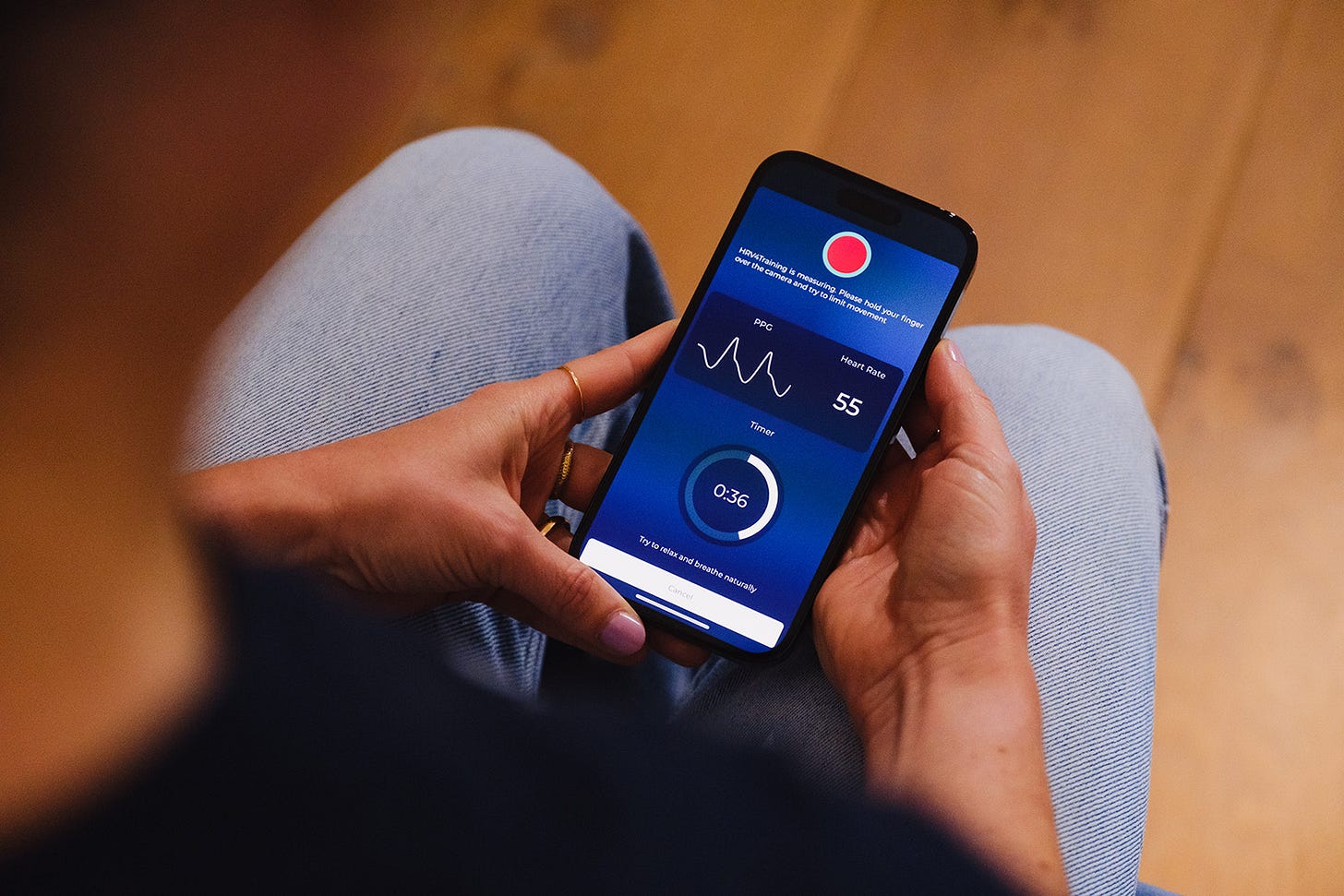Objective and subjective
some thoughts
A question that often comes up, is on the relationship between subjective and objective data.
Should objective and subjective data be aligned and reflect the same? Is your resting physiology supposed to show you what you already know based on your subjective feeling?
Maybe sometimes, but in my opinion, it is not so simple, which doesn't mean tracking them is not useful.
Think about training: a hard effort or even a hard training block is something we perceive and feel as hard. However, an optimal physiological response shows no suppressions in HRV (or increase in heart rate). We bounce back from the stressor quickly.
The fitter we are and the better we plan our training, the quicker we go back to normal, and therefore our morning measurements should be within our normal range more often.
When I was in my last training block before the 100 km del Passatore I was tired. I took longer and more frequent naps, ate more, limited other stressors, etc. - but my data was stable within normal. That was a sign that I could take it, and indeed it all went well, the training and the racing.
There are even papers making this mistake (despite the work of Seiler in 2007, which is the basis of what I have just covered above, see "stability in heart rate variability" on my blog):
Studies looking at the relationship between HRV (and other metrics) with training load over time, look at how these metrics correlate. However, the whole assumption that you should find the metric that "correlates the most" with training load, makes very little sense.
Why? Because you are already measuring training load. What is the point of having another metric that gives you the exact same information? By definition, if a metric is perfectly correlated to training load (positively or negatively), then it is a useless metric.
The whole point of measuring your physiology is not to measure load, but to measure how you respond to that load.
if HRV had a perfectly negative correlation with training load, It would not add any information to the training and recovery equation. Ironically, these studies would interpret the metric with the highest negative correlation with training load as the best metric (!).
In reality, HRV is your response to stress (if you measure it according to best practices, i.e. first thing in the morning, far from stressors, in a rested state), and as such, it should not track the stressful stimulus, but it should show you your response to such stimulus. Sometimes this will be aligned with your subjective feel, sometimes it won't.
When HRV is aligned with your subjective feel in terms of a negative state, my guess is that we overdid it and it is either already too late or definitely time to try to implement a change (reduce stressors when possible or aid recovery, e.g. prioritize sleep, etc.).
Training is an easy application but psychological stressors are probably not different: if we are coping well we re-normalize quickly, if we are not, then we might have suppressions, or a higher coefficient of variation over the week, or periods of chronic suppressions.
Should the data always reflect how we feel? no, otherwise what is the point of tracking, we already know how we feel.
Keep in mind that many other factors might also cause a change (or lack of change), for example other stressors, environmental conditions (from seasonality to temperature changes, all play a role), changes in exercise habits, diet / weight, sleep, etc.
When you track resting physiology, drop expectations, see how it changes in the short and (very) long term, and use it to assess your response, not to track the stimulus.
With all of this, I don't mean that there is always an answer, at times I am also puzzled by the data, which is part of the reason why it remains interesting to me (and also why it cannot be trivialized in made-up scores like readiness/recovery/stress and other things you are sold these days).
But still, it is a measurement (not a guess/estimate/made-up thing), and when taken according to best practices, far from stressors, it reflects how your body is responding to stress in ways we cannot otherwise quantify.
That is fascinating, but not as simple as we'd like.
Marco holds a PhD cum laude in applied machine learning, a M.Sc. cum laude in computer science engineering, and a M.Sc. cum laude in human movement sciences and high-performance coaching.
He has published more than 50 papers and patents at the intersection between physiology, health, technology, and human performance.
He is co-founder of HRV4Training, advisor at Oura, guest lecturer at VU Amsterdam, and editor for IEEE Pervasive Computing Magazine. He loves running.
Social:



